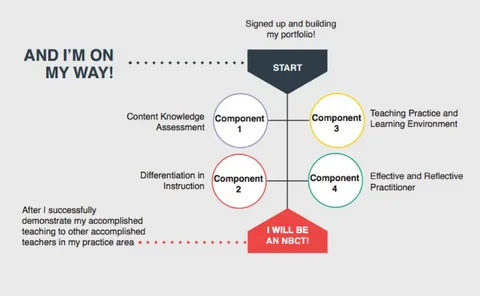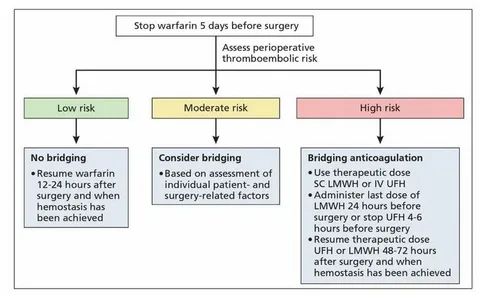Who Employs Perioperative Educators for PS188,000?
Outline
- Introduction: Understanding the Demand for Perioperative Teachers
- The real question is the reasons why perioperative teachers are so respected.
- A brief overview of the role and the way it affects the field of healthcare.
- Key Responsibilities of a Perioperative Educator
- What perioperative educators do daily.
- What is their role in the healthcare industry?
- Where Perioperative Educators Work and Who Hires Them
- A list of employers that are commonly employed and areas in which they’re sought-after.
- The potential for salaries and other factors that affect high wages.
- Qualifications and Skills Needed to Become a Perioperative Educator
- The requirements for education and certification.
- Experience and knowledge make you make an impression.
- Benefits and Challenges of Being a Perioperative Educator
- The pros and pros.
- A few examples of what it’s like working in this area.
- FAQs regarding Perioperative Teachers
- Common questions about qualifications include role, growth, and qualifications.
- Conclusion
- Perioperative educators are essential in the modern world of healthcare.
- How do you get started in this lucrative job?
1. Introduction: Understanding the Demand for Perioperative Teachers
If you’re thinking about the possibility of pursuing a job within healthcare, then you’ve probably thought, “Who employs perioperative educators for PS188,000?“
Good question. Let’s look at it in detail.
Hospitals and surgical centers require experienced educators to train and build their surgical personnel. Perioperative educators work on training healthcare professionals for their role in the operating room, ranging from teaching the safety guidelines to introducing new surgical methods. Because a well-trained staff can lead to better outcomes for patients and improved outcomes for patients, many employers provide affordable salaries to perioperative teachers.
This is the reason skilled perioperative teachers can make as much as PS 188,000. They are essential to a vital health care sector, and demand for them is increasing as healthcare facilities strive to achieve better standards and greater safety for patients.
Let’s look at the perioperative education profession, where they work, and how to enter this rewarding profession.
2. Key Responsibilities of a Perioperative Educator

Perioperative educators concentrate on training surgical teams. Their role is to warrant that everyone in the operating room, from technicians to nurses, is educated, proficient, experienced, and ready to handle any circumstance.
Day-to-Day Responsibilities:
- Learning and development Create educational programs for surgical techniques, safety protocols and the use of equipment.
- Skills Assessment Watching employees perform their tasks, giving feedback and suggestions for improvements.
- curriculum design Designing educational materials for employees and new hires.
- Always current Staying up to date with the latest surgical procedures tools, equipment, and rules.
- Assuring Compliance Ensuring everyone in the hospital follows national safety standards.
Imagine that a hospital introduces a newly developed surgical robotic. The role of a perioperative educator would include understanding the functions of the robot and designing the training program for surgeons, then guiding the team as they learn how to use the machine. This ensures that everyone is well-prepared and confident when it comes time to perform real-life procedures.
3. Where Perioperative Educators Work and Who Hires Them
Top Employers of Perioperative Teachers
Also, who employs perioperative educators to teach PS188,000?
Here’s a look at some of the principal employers and the reasons they pay a high salary for this job:
- Teaching hospitals They require teachers to teach new medical personnel and assist with their ongoing development. They pay competitive wages to attract highly skilled professionals.
- Private Health Centers Private hospitals often are able to afford the money and desire to serve high-paying salaries. They rely on skilled teachers to ensure high standards.
- Surgical Equipment Companies Certain equipment makers employ educators for perioperative training in order to educate hospital personnel on how to utilize the latest technology and equipment.
- Specialized surgical centers They focus on specific procedures and require personnel to be trained properly and perioperative educators are an essential investment.
Salary Expectations

Perioperative educator salary varies depending on experience, geographic where they live, and the budget of the employer. Here’s a quick look:
- Entry-Level Beginning at PS40,000, depending on the location and the kind of facility.
- Mid-Level The range of HTML0 can be as high as the PS100,000 mark for teachers who have enough experience.
- Top-Level/Experienced: Highly experienced educators in top hospitals or private settings can earn up to PS 188,000.
Teachers who work in highly-demand areas or with expertise in the latest techniques for surgery are more likely to be the most sought-after deals.
4. Qualifications and Skills Needed to Become a Perioperative Educator
Are you interested in becoming a perioperative educator? Here’s the information you’ll need:
Educational Requirements
- A Bachelor’s degree in Healthcare or Nursing Employers generally require at least a bachelor’s degree in the healthcare-related field.
- Specialized certifications The certifications like CNOR (Certified Nursing Operating Room) as well as advanced nurse education could provide you with an advantage.
- Extra Degrees Some educators seek an M.S. in Nursing Education. This could lead to more lucrative positions.
Skills That Help You Stand Out
- Strong communication is essential to energetically instructing and guiding others.
- clinical experience Hands-on experience in operating rooms or surgical environments is extremely valuable.
- Organizational Skills: Essential for planning and coordination of different training programs.
- Technical knowledge The ability to be familiar with surgical tools and procedures give credibility when it comes to training.
If you have these qualifications, you’ll be in a good position to compete for perioperative educator positions in the top hospitals and health centers.
5. Benefits and Challenges of Being a Perioperative Educator
As with all careers that involve perioperative work, being an educator comes with its challenges and ups. Here’s an overview:
Pros of Being a Perioperative Educator
- A High Potential for Salary Based on years of experience, wages can go as high as PS188,000.
- Effective Work The training you favor directly affects the outcomes of patients and the safety of patients.
- Multiple openings There are many opportunities to be employed in hospitals, private centers, or in conjunction with equipment makers.
- personal growth Work in an environment where learning is the primary focus, which allows you to stay current and develop your job.
Cons of Being a Perioperative Educator
- High Pressure It is the responsibility of every employee to assure the safety of employees. standards.
- Long hours Training sessions, particularly for new procedures, may run over a period of time.
- Continuous learning Keeping up-to-date with the most recent surgical trends and techniques is crucial.
Real-World Example
Imagine working as surgical teams on an innovative procedure. It’s exciting to watch the team transform from unsure and unsure; however, it requires the right planning, experience, and perseverance.

6. FAQs about Perioperative Educators
1. Who employs perioperative educators for PS188,000?
- The top employers are teaching hospitals, private health centers, and companies that manufacture surgical equipment. Employers appreciate experienced teachers and will offer a salary for their expertise.
2. What are the qualifications required to be a perioperative educator?
- Bachelor’s degrees in nursing or health together with certifications, such as CNOR, are usually required. Practical experience in surgical settings along with communication talent are vital.
3. What is the reason why perioperative teachers receive high pay?
- Since they play a crucial function in ensuring the safety of patients and high-quality healthcare. Employers that pay top salaries want the excellent talent to educate their employees to meet the highest standards.
4. What makes a perioperative teacher differ from a standard nurse educator?
- Perioperative educators concentrate on training personnel specifically for the surgical setting and cover areas such as surgical techniques, tools, and safety procedures. Nurse educators could provide a wider array of subjects outside of the surgical room.
5. What is the job expansion like for educators who are perioperative?
- Professional development is expected to be a success, particularly for those who seek advanced certifications or specialize in the most sought-after surgical procedures. Many instructors move to higher-level training positions or even consult.
6. Does a nurse have the ability to transition into an educator for perioperative procedures?
- Yes, a lot of perioperative educators begin as nurses and move on to perioperative education by acquiring extra accreditations and experiences within the operating rooms.
7. Conclusion: Why Perioperative Educators Are Vital to Healthcare
Perioperative educators play a crucial function in the field of the world of health. They help bridge the gap between knowledge and practice, educating surgical teams to deliver the best quality of patient care. This is the reason why employers, such as teaching hospitals and private healthcare facilities, invest in experienced educators and pay competitive salaries, ranging from PS188 to PS188,000.
If you’re seeking the possibility of combining the clinical experience with teaching and are passionate about improving the patient experience, this might prove to be your ideal job.
If you’re working in healthcare or getting started, think about acquiring the knowledge required to become a pharmacist




